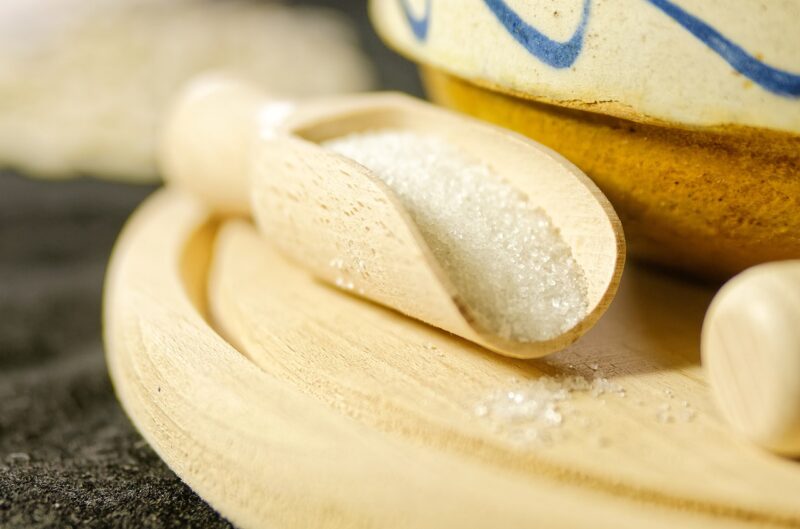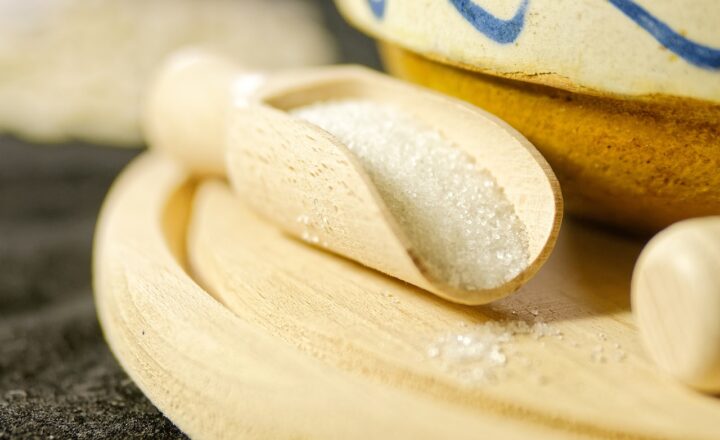The Health Benefits of Different Sugars Compared to Traditional Sugar
November 11, 2024

In recent years, there has been a growing awareness regarding the impact of sugar on our health. While traditional sugar, or sucrose, has long been a staple in our diets, alternative sweeteners and sugars have emerged, each offering unique health benefits. This article delves into the health benefits of various sugars compared to traditional sugar, shedding light on how they affect our bodies and our overall well-being.
1. Understanding Traditional Sugar: Sucrose
Traditional sugar, chemically known as sucrose, is a carbohydrate composed of glucose and fructose. For centuries, it has sweetened our foods and beverages, but its excessive consumption is linked to numerous health issues including obesity, diabetes, and heart disease.
The Drawbacks of Traditional Sugar:
– Empty Calories: Sucrose is high in calories but lacks essential nutrients, leading to weight gain and nutritional deficiencies.
– Increased Blood Sugar: Consuming large amounts can cause spikes in blood glucose levels, increasing the risk of insulin resistance.
– Dental Problems: Sucrose feeds bacteria in the mouth, leading to tooth decay and gum disease.
Understanding these drawbacks helps highlight the importance of exploring healthier alternatives.
2. Health Benefits of Alternatives to Sugar
Over the years, a variety of sugar alternatives have gained popularity. Let’s examine some common alternatives to traditional sugar and their benefits:
a. Honey
Honey is a natural sweetener with a complex flavor profile and numerous health benefits.
– Rich in Antioxidants: Honey contains antioxidants, which help combat oxidative stress and inflammation in the body.
– Antimicrobial Properties: Honey has natural antibacterial and antifungal properties that can support wound healing.
– Lower Glycemic Index: Having a lower glycemic index than regular sugar means honey may be a better option for regulating blood sugar levels.
b. Agave Nectar
Agave nectar is a sweetener extracted from the agave plant and is often touted as a healthier alternative to traditional sugar.
– Low Glycemic Index: Agave nectar has a lower glycemic index than traditional sugar, leading to slower increases in blood sugar levels, making it a safer sweetener for those with diabetes.
– Prebiotic Properties: Agave contains inulin, a type of soluble fiber that can promote digestive health by acting as a prebiotic.
c. Stevia
Stevia is a zero-calorie natural sweetener derived from the leaves of the Stevia plant.
– Calorie-Free: Stevia is an excellent choice for individuals looking to reduce calorie intake without sacrificing sweetness.
– Blood Sugar Management: Research suggests that stevia may help lower blood sugar levels and improve insulin sensitivity, making it suitable for diabetics.
d. Coconut Sugar
Coconut sugar is made from the sap of the coconut palm and has a unique caramel flavor.
– Contains Nutrients: Unlike traditional sugar, coconut sugar retains some nutrients from the coconut tree, including iron, zinc, calcium, and potassium.
– Lower Glycemic Index: With a lower glycemic index than regular sugar, it is gentler on blood sugar levels.
e. Maple Syrup
Maple syrup is a natural sweetener made from the sap of maple trees, offering a rich flavor along with numerous health benefits.
– Rich in Antioxidants: Maple syrup contains various beneficial compounds that may protect against oxidative stress.
– Mineral Content: It contains essential minerals like manganese, zinc, and potassium that are beneficial for overall health.
3. The Impact of Sweeteners on Health
While alternative sugars provide various health benefits, their effects can vary between individuals. Here’s a closer look at their overall impact on health:
a. Metabolic Effects
Consuming alternatives to traditional sugar can lead to better metabolic health. Studies indicate that individuals using natural sweeteners show improvements in fasting blood sugar levels, lower hemoglobin A1C levels, and better insulin sensitivity.
b. Weight Management
Since many alternatives are lower in calories, they can be helpful in managing weight. Switching from traditional sugar to lower-calorie options can reduce overall caloric intake, assisting with weight loss or maintenance efforts.
c. Gut Health
Some alternatives, such as agave nectar, can positively affect gut health through their prebiotic properties, promoting the growth of beneficial gut bacteria and aiding digestion.
4. Choosing the Right Sweetener
With a wide array of sugar alternatives available, it’s crucial to choose the right one based on individual health needs and preferences. Here are some tips for selecting the best sweetener for you:
– Evaluate Your Health Goals: Determine your primary reasons for reducing sugar, whether it’s to manage weight, control blood sugar, or simply reduce calorie intake.
– Read Labels: Not all sweeteners are created equal. Make sure to read labels for added ingredients or artificial additives.
– Moderation is Key: Even healthier alternatives should be consumed in moderation to maintain a balanced diet and avoid potential negative effects from excessive sweetness.
Conclusion
As we navigate our way through the myriad of sweeteners available, it’s essential to understand the health benefits that different sugars offer compared to traditional sugar. While traditional sugar poses significant health risks, numerous alternatives exist that can help satisfy sweet cravings without compromising health.
Whether you choose honey, agave nectar, stevia, coconut sugar, or maple syrup, being mindful of their benefits and incorporating them wisely can enhance your dietary choices. An informed decision about sweeteners can lead to a healthier lifestyle and improved well-being overall.
Making conscious choices today can contribute to better health tomorrow.








